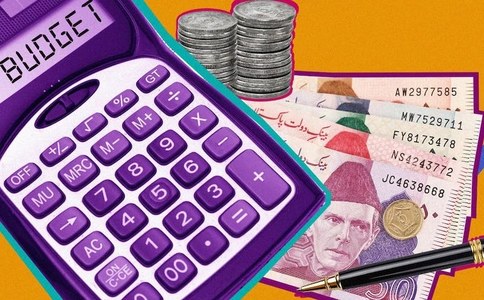ISLAMABAD: While highlighting uncertainty about the federal budget and economic conditions ahead, the Centre on Saturday asked the provinces to formulate their budgets based on their own best assessments and the past performance of the Federal Board of Revenue (FBR).
“This is not a divine revelation and is subject to adjustment if God forbid its (pandemic’s) severity increases or it prolongs,” said Adviser to the Prime Minister on Finance and Revenue Dr Hafeez Shaikh at his post-budget news conference on Saturday.
“For now, we have presented an annual budget like always.”
He said there were arguments that once a revenue target of Rs4.9 trillion or Rs4.6tr is set by the Centre, the provinces would make their budgets on that projection.
The FBR has seldom achieved tax targets given to it over the years and its collection has actually gone down over the last two years. Since more than 57.7pc of total federal taxes are meant for the provinces under the National Finance Commission (NFC) award, they end up making higher expenditure and later face fiscal problems as revenue targets fail.
PM’s adviser says federal budget estimates are subject to adjustments amid pandemic
He said international institutions — IMF, ADB, World Bank, Islamic Development Bank and Asian Infrastructure Investment Bank — stood by Pakistan, because the government wanted to move ahead with fiscal discipline without putting hands in the people’s pockets and instead wanted to facilitate them due to the current difficult situation.
At the same time, he said, this did not mean to give up efforts to increase tax collection. “So we have set aspirations for a target and would make best efforts with complete sincerity to achieve it. But I cannot say with confidence or anybody else what lies ahead,” he said. He said the government was committed to documentation of economy but with seriousness and sensitivity.
He said if the provinces believed their forecasts could be better and they had been watching the FBR performance over the years that is different from reality, they should make their own decisions based on better assessment. However, he added, the Centre had asked the provinces to reduce their costs, increase their own revenues and make forecasting the way they find better. There was need for coordination on all those issues and the Centre would go for better coordination once the budget process was over, he claimed.
The adviser said discussions with the International Monetary Fund (IMF) would be started within a couple of days and weeks for a future line of action, but said it was a “bad tendency to portray the relationship to orders and obedience”.
Enjoying a central position in the international financial environment, the IMF, of which Pakistan was also one of 200 members, wanted the country be run in a responsible manner, Dr Shaikh said.
“We have shown to the world that we are ready to spend according to our resources and can take tough decisions when needed. We have very good relations with the IMF,” the PM’s adviser said, adding that it was the Fund that took the lead in approving $1.4bn emergency funds when Covid-19 hit the country.
The adviser said the government could not be held responsible for coronavirus pandemic, which had brought difficult times for the world. Pakistan virtually suffered over Rs3trn losses to the national income even though it could not be exactly estimated, nor could it be predicted how long the pandemic would go on and what remain its intensity, he said. In the form of lower revenue collection, about Rs900bn loss had been inflicted due to Covid-19, he added.
Dr Shaikh sidestepped questions as to why the cost of various tax exemptions had increased to Rs1.15tr this year that last year stood slightly on the lower side – total Rs2.2tr in two years – when the government claiming to have withdrawn tax exemptions. He referred the question to the FBR chairperson who said disclosure on the documents was a requirement of the public finance management law along with details. Another tax official said no tax exemption was withdrawn in the next year budget but last year exemptions withdrawn were to the extent of Rs350bn.
The adviser said the government had given over Rs50bn relief in taxes and duties in the budget for industrialisation and promotion of private business sector, which was government’s top priority. He said the import duties on 1,623 tariff lines (thousands of items) had been withdrawn and reduced on some 200 other tariff lines. Likewise, he said, about 10 types of withholding taxes had also been withdrawn in the next year budget.
The capital gain on tax on the construction sector had been reduced from 1.5pc to 0.5pc and the federal excise duty on cement was reduced by 0.25pc. “The purpose of these measures is to provide maximum relief to the business and industrial sector as these incentives would reduce the cost of business and encourage more people to invest and lead to job creation,” he added.
Dr Shaikh said the government reduced its expenditures wherever possible and took very tough decisions and no increase in expenditures of the PM House and the President House were allowed.
Responding to a question, the adviser said saving rates and per capita incomes could be increased only when national income was increased or population growth rate was controlled for which revenue required to be increased. This had to be done through smart measures, as the government did not want to add tax burden on the existing taxpayers, he added.
Published in Dawn, June 14th, 2020














































